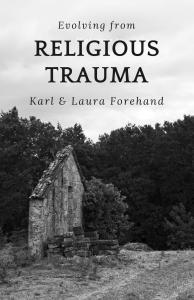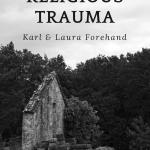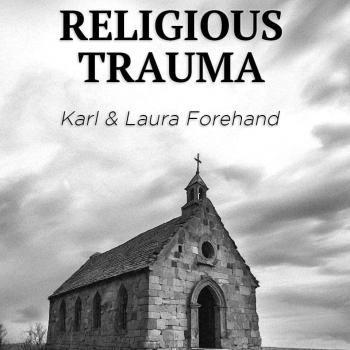An Open Letter to Pastors for Consideration

I was a pastor for 20 years. About eight years ago, I began to question everything. I started deconstructing my beliefs and eventually walked away from organized religion. Some theologians think I’m adversarial to them because I openly question organized religion and whether we need clergy in the near future.
I realize we have a lot of co-dependency and learned helplessness in our religious practices, but the urgency of the time demands that we start asking bold questions to advance the human condition. Allow me to “step on your toes” for a few minutes. I’m not bashing you or your profession, but we must be forthright.
I love the heart of pastors because I know what it feels like to have that calling. I also know the love-bombing’s exhilaration, the congregants’ inherent respect, and the devastating trauma of church and ministry. I don’t doubt your motives or intelligence, but can we talk honestly even if we still disagree in the end.
I realize I must speak generally, so please try to understand that I’m reporting on the systemic issue, not the exceptions. When people respond with, “I’m sorry you experienced that, but my church is different,” I experience it as gaslighting.
Consider how everything about your position creates a power differential.
As you know, clergy are often seen as the main person in the church that hears from God. They are often elevated when they speak, and everyone must listen quietly. If families or groups can’t agree, the pastor or priest is expected to make the call. When they accept a call, they immediately accept the role of CEO, strategist, counselor, and other combinations of things they may or may not be qualified for. Pastors sometimes can delegate to subordinates, which amplifies the power differential and creates hierarchies.
Power differentials are a big part of religious trauma, which is my main concern. Laura reminds me often of how people elevated me, even in small churches. She didn’t like it, but she didn’t feel like she could speak up. What would you call it when people can’t speak their minds because of these inherent power differentials? That’s right. You can say it; it’s abusive!
I didn’t desire or seek that differential, but it came with the ordination. I know an doing very hard work to process ny role in this type of church harm.
Consider your congregation’s trama.
Your congregation likely carries wounding and trauma. Now that we understand it, we can’t ignore it any longer. Some aspects of religion help regulate our trauma when we are triggered, but it doesn’t usually have the time or resources to address the root issues adequately. Subsequently, new trauma can be introduced as a byproduct of itself.
What would it look like to stop the trains and take a break from producing the show, running the business, and maintaining the building so that we can process our own trauma and help each other heal? It may seem radical, but that is exactly what I did about eight years ago.
Sometimes, we would rather see churches fail than limit and redesign how they function. We hate to admit we were wrong, especially since we built our reputation on being right, even if we are progressive.
Consider your theology.
Before I start, I am definitely NOT talking about creating a 2.0 of where we left. The endless loop of arguing Scripture and debating theology has been happening forever. Most of the debates are over manufactured theologies and beliefs like Eternal Conscious Torment (Hell), Substitutional Atonement, the Trinity, etc. Guess who created them? That’s right, the theologians! Once they believe they are more right than others, they declare their position and defend their creeds and belief systems.
This posture stunts growth and causes all sorts of issues for organized religion. We build buildings, create stages and conferences, and pay these charismatic individuals to remind us why we are the most “right.”
Wouldn’t it have been better not to have Scriptures or Religion except Love Your Neighbor? What if we were kind, compassionate, and mindful of other people’s suffering? In our book, Out Into the Desert, my supposition was that we could replace most of what we do at church with a few people who care for and listen to us.
Consider you might be wrong
It’s very helpful to say out loud, “I might be wrong.” Then, we can explore truth and practice love and compassion instead of building edifices (buildings and belief systems) to defend our theology.
I started this journey 8-10 years ago and can now report that I’m much better off. I am still learning, and I have addressed much of my trauma. In my 20 years of ministry, I rarely learned anything significant. I never seriously addressed my trauma because I was defending what I already believed to be true.
Consider Everything
I know when I share these things, it frightens you! If we are honest, we might admit that our predecessors cultivated this fear in us. The other part is the root part of your brain that thinks you are in danger. Looking at these things honestly, even though they scare us, we can think soberly about everything. We can respect that instinct in us to protect but also bravely be bold and vulnerable so that we may move forward and get better.
Be where you are. Be who you are.
Karl Forehand
Free E-book, Evolving from Religious Trauma
Healing from Trauma 2 – Going Inside & Trusting Ourselves
Healing from Trauma – Part 1 of 3 – Being and Becoming

Karl Forehand is a former pastor, podcaster, and award-winning author. His books include Out into the Desert, Leaning Forward, Apparent Faith: What Fatherhood Taught Me About the Father’s Heart, The Tea Shop and Being: A Journey Toward Presence and Authenticity. He is the creator of The Desert Sanctuary podcast and community. He is married to his wife Laura of 35 years and has one dog named Winston. His three children are grown and are beginning to multiply! You can read more about the author here.














